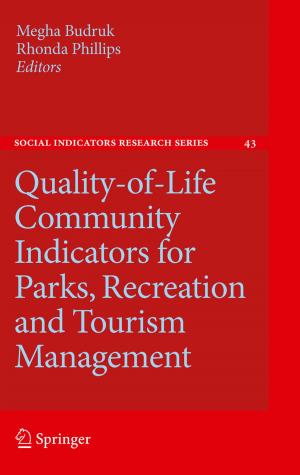Landscape-scale Conservation Planning
Nonfiction, Social & Cultural Studies, Political Science, Politics, City Planning & Urban Development, Science & Nature, Science, Earth Sciences, Geography| Author: | ISBN: | 9789048195756 | |
| Publisher: | Springer Netherlands | Publication: | September 21, 2010 |
| Imprint: | Springer | Language: | English |
| Author: | |
| ISBN: | 9789048195756 |
| Publisher: | Springer Netherlands |
| Publication: | September 21, 2010 |
| Imprint: | Springer |
| Language: | English |
Hugh P. Possingham Landscape-scale conservation planning is coming of age. In the last couple of decades, conservation practitioners, working at all levels of governance and all spatial scales, have embraced the CARE principles of conservation planning – Comprehensiveness, Adequacy, Representativeness, and Efficiency. Hundreds of papers have been written on this theme, and several different kinds of software program have been developed and used around the world, making conservation planning based on these principles global in its reach and influence. Does this mean that all the science of conservation planning is over – that the discovery phase has been replaced by an engineering phase as we move from defining the rules to implementing them in the landscape? This book and the continuing growth in the literature suggest that the answer to this question is most definitely ‘no. ’ All of applied conservation can be wrapped up into a single sentence: what should be done (the action), in what place, at what time, using what mechanism, and for what outcome (the objective). It all seems pretty simple – what, where, when, how and why. However stating a problem does not mean it is easy to solve.
Hugh P. Possingham Landscape-scale conservation planning is coming of age. In the last couple of decades, conservation practitioners, working at all levels of governance and all spatial scales, have embraced the CARE principles of conservation planning – Comprehensiveness, Adequacy, Representativeness, and Efficiency. Hundreds of papers have been written on this theme, and several different kinds of software program have been developed and used around the world, making conservation planning based on these principles global in its reach and influence. Does this mean that all the science of conservation planning is over – that the discovery phase has been replaced by an engineering phase as we move from defining the rules to implementing them in the landscape? This book and the continuing growth in the literature suggest that the answer to this question is most definitely ‘no. ’ All of applied conservation can be wrapped up into a single sentence: what should be done (the action), in what place, at what time, using what mechanism, and for what outcome (the objective). It all seems pretty simple – what, where, when, how and why. However stating a problem does not mean it is easy to solve.















